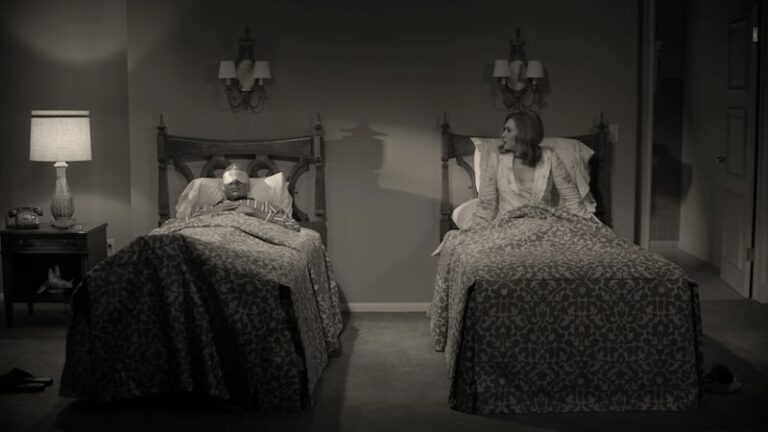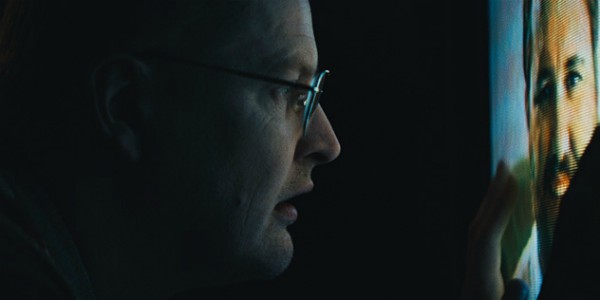REPOSSESSION: Finally, Some Middling Horror For The Upper Class
At several points, while watching Repossession, the work of co-directors Ming Siu Goh and Scott C. Hillyard, I had to ask myself: “Did that really just happen?” These lapses in the understanding of timeline and plot seem at times intentional – often during unexpected flashback sequences that suggest something is amiss with the outwardly straightforward narrative – but at other times downright messy, often as a result of jump cuts and frenetic editing that is almost impressively disorienting. And hey, that was surely intentional, but… I mean, why?
Yet there’s something admirable about the way Repossession stays true to its original pitch. Ming and Hillyard’s work is, indeed, a genre-bending horror story with a fair flash of social commentary (or, at least, social awareness) in the mix. The film is at its very strongest when it leans into its idiosyncrasies, particularly in the back half of its 96-minute runtime – even if the script or delivery doesn’t quite stick the landing. Oh, well. There’s some fun along the way, regardless.
“The action of retaking possession, in particular when a buyer defaults on payments”
You might expect a movie titled Repossession to start somewhere warm and fuzzy. Shockingly, that’s not the case – in fact, things are about as bad as they can be for our protagonist, well-off, 50-year-old Jim Tan (Gerald Chew). After twenty years of working at his prestigious engineering position in Singapore, Jim has been laid off unceremoniously.
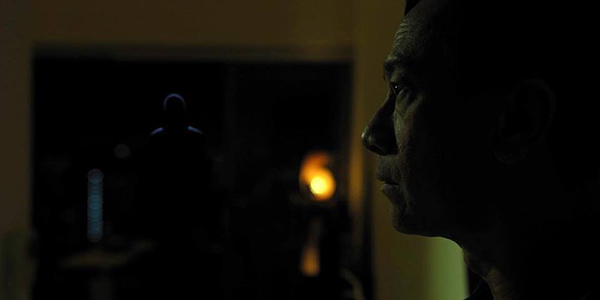
The embarrassing implications of this are laid bare by the absent stares Jim receives from his visibly younger co-workers as he numbly navigates his office post-firing. It’s too much for him, and in an early display of vivid emotion, Jim makes a violent scene and storms out.
This is an interesting starting point for what is, for the most part, a quiet film, and one that features an awfully stoic protagonist, at that. But it’s fitting insofar as it suggests something might lurk beneath Jim’s placidity.
What follows is a painful montage of Jim choosing, time and time again, to hide his joblessness from his wife Linda (Amg Cheng) and daughter Ashley (Rachel Wan). It’s absurd, so absurd as to be comical, even. Thankfully, the audience isn’t intended to have this opinion in solitude. With each new scene, Jim’s best friend Vinod (Sivakumar Palakrishnan) begs him to come clean to his family about his circumstances.
But Jim is obstinate. He refuses to adjust his situation in any way, much less acknowledge his unemployment to anyone else. Even as he contends with massive loans he can no longer pay, he does not alter the outward manifestations of his previous wealth. The expensive car, his wife and daughter’s life of charity, the luxury condo they share – these reign supreme in Jim’s mind, and, presumably, in the status-obsessed consciousness of the society he inhabits. They are more important than the truth.
Again. Presumably.
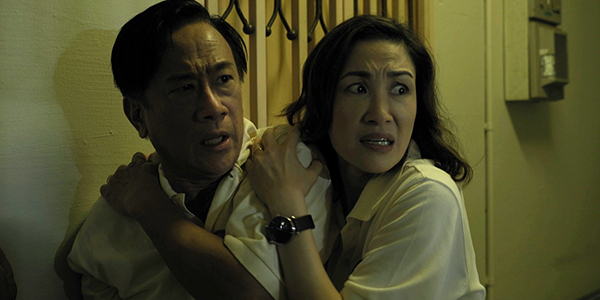
Unfortunately, Repossession does not create a convincing picture of society interested in appearance above all else. Instead, it creates a protagonist who seems bullheaded and unable to face reality. Everyone in the film wants to help Jim, from Linda, to Vinod, to probably my favorite character ever, the insanely cheerful nun who greets Jim during his frequent visits with his vegetative sister. Likely the most important establishing fact of the film’s plot, then, must be filled in by the audience.
As it were, the film eventually strays from its humble roots as a quiet thriller investigating the pitfalls of immense wealth and plunges into straight-up madness and horror, so the loss is not as palpable as it could have been.
“The state of being controlled by a demon or spirit again”
In the era of Covid-19, films take on new meaning. Though Repossession was filmed long before society had to contend with quarantine measures and anti-maskers en masse, its plot seems intrinsically linked with today’s world. Unemployment, after all, is the starting point for Jim’s journey – or, at least, it’s the audience’s touchstone for understanding it.
But, by my count, comparisons end there. Jim isn’t really comparable to a minimum-wage worker facing unemployment during Covid; he’s more of a CEO type, a Jeff Bezos figure getting rich during a global pandemic. His firing feels like a plot device, a fluke. Maybe that’s why I never reached an adequate level of sympathy for him. My preferences laid with Linda (Cheng’s performance was strong here), though the audience knows next to nothing about her. She, too, embodies the stereotype of a pampered, upper-class wife. She has her own charity and everything.
To be fair, the audience knows very little about any character in Repossession. Vinod is treated as a sounding board for Jim’s perpetually terrible decisions, while Ashley likes to party with her friends on school nights. Those are legitimately full character summaries. The static nature of this spoiled crew probably could have been weaponized for some grand “point” about privilege, but alas, Repossession loses most of its already fleeting interest in character study by about the midway mark. From here on out, the horror – thus far manifesting in fleeting moments – really kicks in.
This is also where the editing goes a little off the rails.
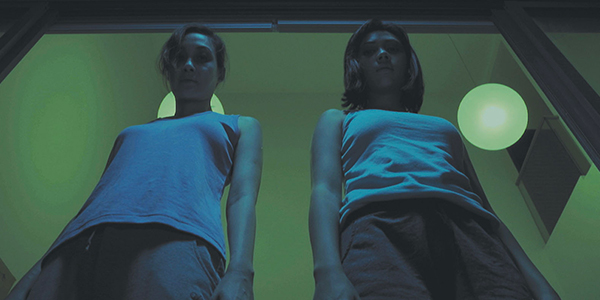
Thankfully, amidst confusing cuts and seconds-long scenes, this portion of the film also supplies several visually satisfying beats. Jim’s inner demons are a little more violent than the average person’s, and Ming and Hillyard do impressive work bringing them to screen. Yes, this portion of the movie is messy, and it feels largely unearned. Yes, the link between financial repossession and literal repossession is tenuous. Regardless, some of these scenes are so fast-paced (and disturbing!), particularly compared to the stiff first half of the film, that it’s hard to bemoan their presence.
And let it be said, the final shot of Repossession made many points, even if I’m not totally buying what it’s selling.
Conclusion
Repossession bites off more than it can chew, but it’s a scrappy film nonetheless, one that provides enough thrills to satisfy a horror fanatic… as long as they can make it through the first sweltering 45 minutes.
In a way, this film feels like two different stories folded into one. As a cinephile (eh hem), I want to buy into its narrative on class appearance, floundering though that narrative may be. But, if I’m being honest, I vastly prefer the film’s visual horror, which at least provoked some shallow reactions.
If you’ve seen Repossession, which aspect of its plot did you find more compelling: Jim’s struggle to keep up appearances or the wild horror of the last 25 minutes? Let us know in the comments below!
Repossession is currently making rounds around the festival circuit. If you live on the U.S.’s West Coast, you can catch it on September 6 and 7 virtually through the Horrible Imaginings Film Festival.
Watch Repossession
Does content like this matter to you?
Become a Member and support film journalism. Unlock access to all of Film Inquiry`s great articles. Join a community of like-minded readers who are passionate about cinema – get access to our private members Network, give back to independent filmmakers, and more.
Join now!




